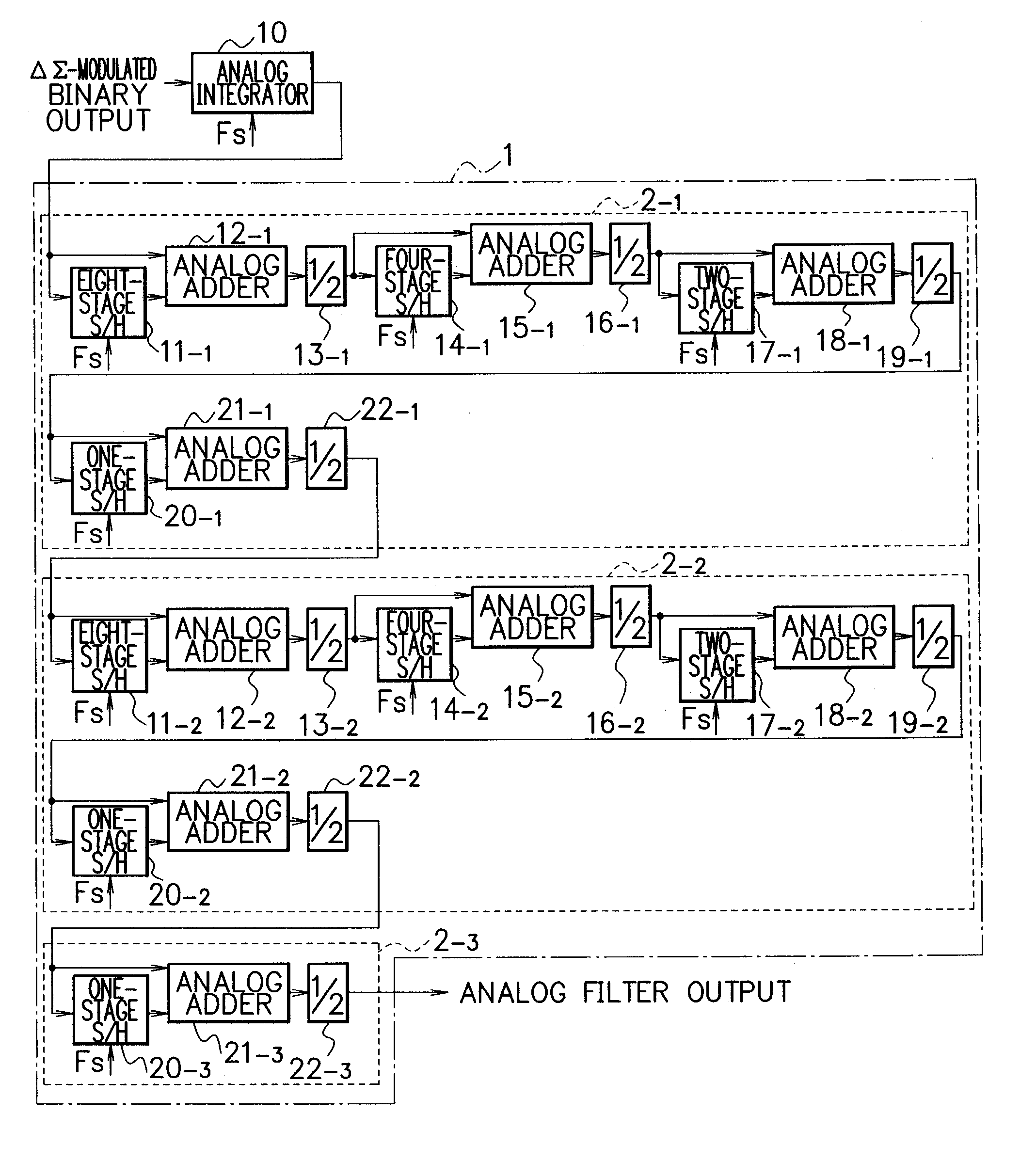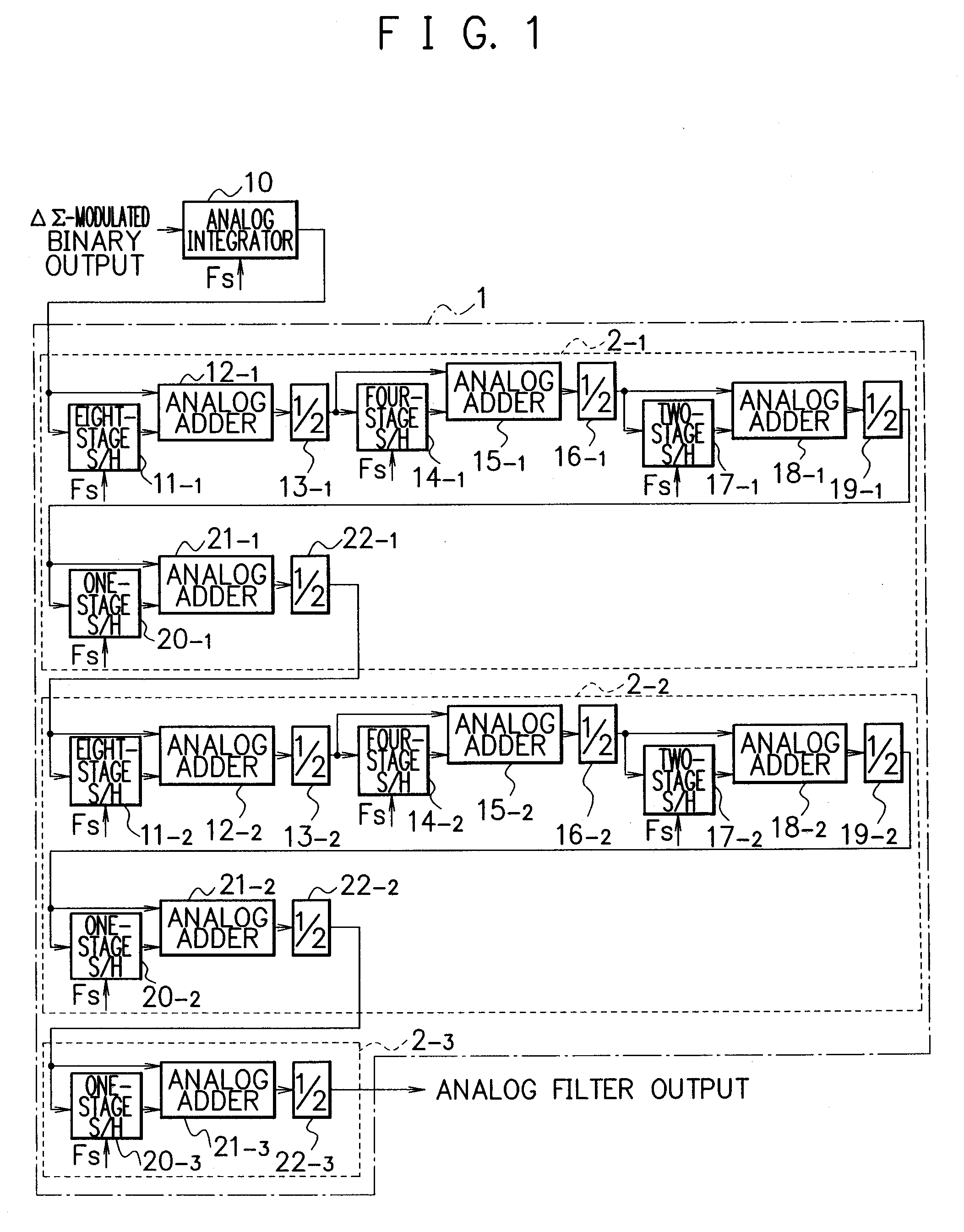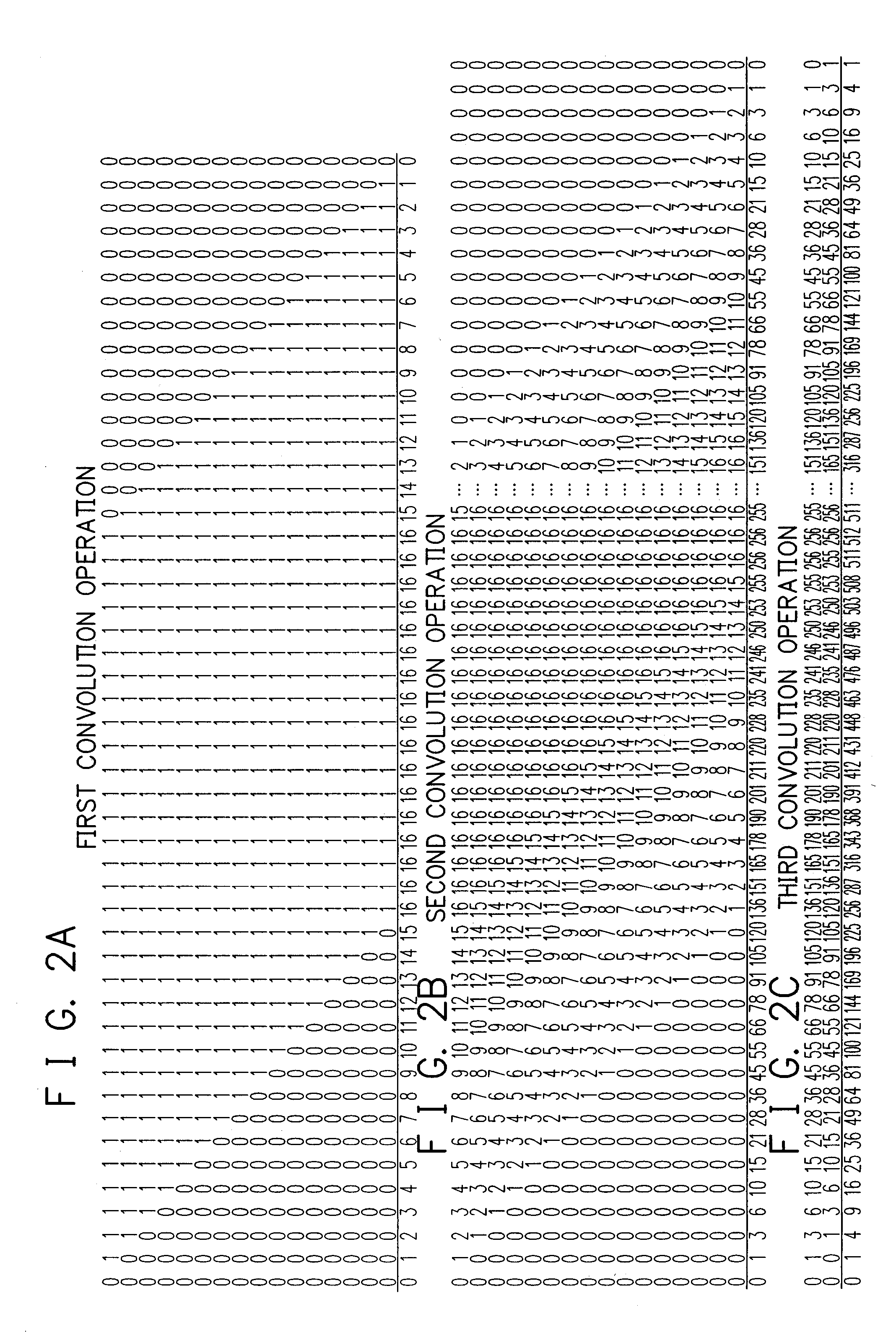Analog filter
a filter and analog technology, applied in the field of analog filters, can solve the problems of distorted output waveform, complex constitution, and distorted output waveform, and achieve the effects of preventing phase distortion, less distortion in output waveform, and conspicuous enhancement of sound quality
- Summary
- Abstract
- Description
- Claims
- Application Information
AI Technical Summary
Benefits of technology
Problems solved by technology
Method used
Image
Examples
first embodiment
[0034] An analog filter according to a first embodiment of the invention provides an analog signal having a smoother and less distorted waveform by over-sampling in certain times, and performing the moving average or convolution operation (hereinafter referred to as convolution) on individual ΔΣ-modulated binary signal (one bit).
[0035]FIG. 1 is a block diagram showing one configuration example of the analog filter according to this embodiment. FIG. 2 and FIG. 3 are diagrams for explaining an operation principle of the analog filter according to this embodiment. First of all, the operation principle will be described below using FIG. 2 and FIG. 3.
[0036]FIG. 2 and FIG. 3 show a process of converting a single rectangular wave having a time width of 2nT (n=16 in FIG. 2) and an amplitude 1 into an analog signal, with a unit time determined by a sampling frequency f being T (=1 / f).
[0037]FIG. 2A shows a processed example of over-sampling in 2n times and the first convolution operation. ...
second embodiment
[0062] A second embodiment of the invention will be described below.
[0063] An analog filter according to the second embodiment of the invention provides an analog signal having a smoother waveform by weighting a ΔΣ-modulated binary signal (one bit signal) with a digital fundamental waveform corresponding to a predetermined sampling function as described below, and performing the convolution operation as described in the first embodiment on its output signal.
[0064]FIG. 7 is a block diagram showing one configuration example of the analog filter according to this embodiment, and FIG. 8 is a timing chart showing the operation timing. Also, FIG. 9 is a diagram showing the digital fundamental waveform, and FIG. 10 is a graph representing a waveform obtained as a result of passing the digital fundamental waveform through the analog filter. First of all, the operation principle will be described below using FIG. 9 and FIG. 10.
[0065] A digital fundamental waveform as shown in FIG. 9 is fu...
PUM
 Login to View More
Login to View More Abstract
Description
Claims
Application Information
 Login to View More
Login to View More - R&D
- Intellectual Property
- Life Sciences
- Materials
- Tech Scout
- Unparalleled Data Quality
- Higher Quality Content
- 60% Fewer Hallucinations
Browse by: Latest US Patents, China's latest patents, Technical Efficacy Thesaurus, Application Domain, Technology Topic, Popular Technical Reports.
© 2025 PatSnap. All rights reserved.Legal|Privacy policy|Modern Slavery Act Transparency Statement|Sitemap|About US| Contact US: help@patsnap.com



